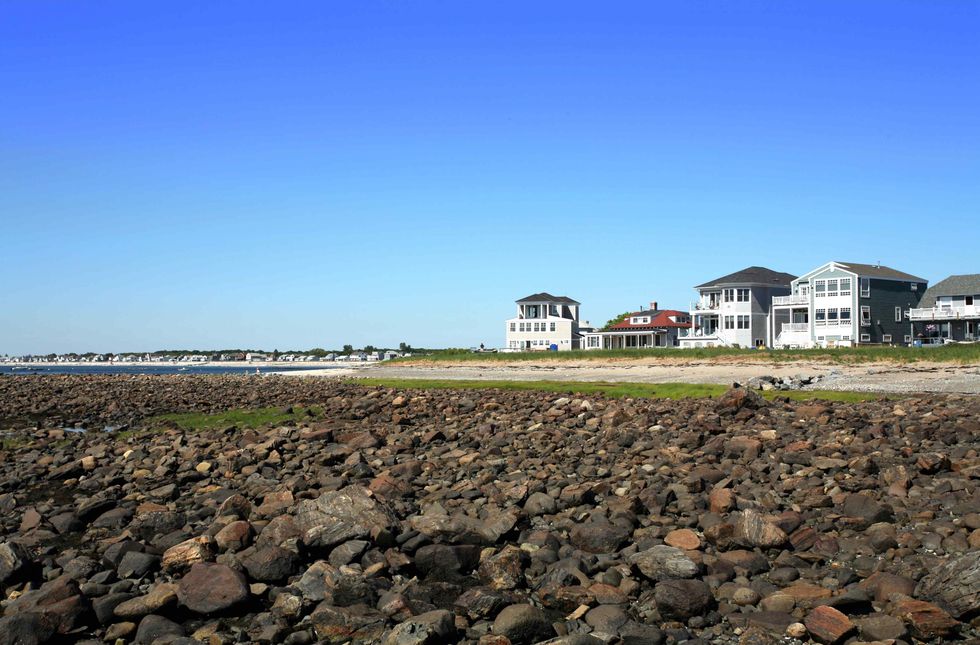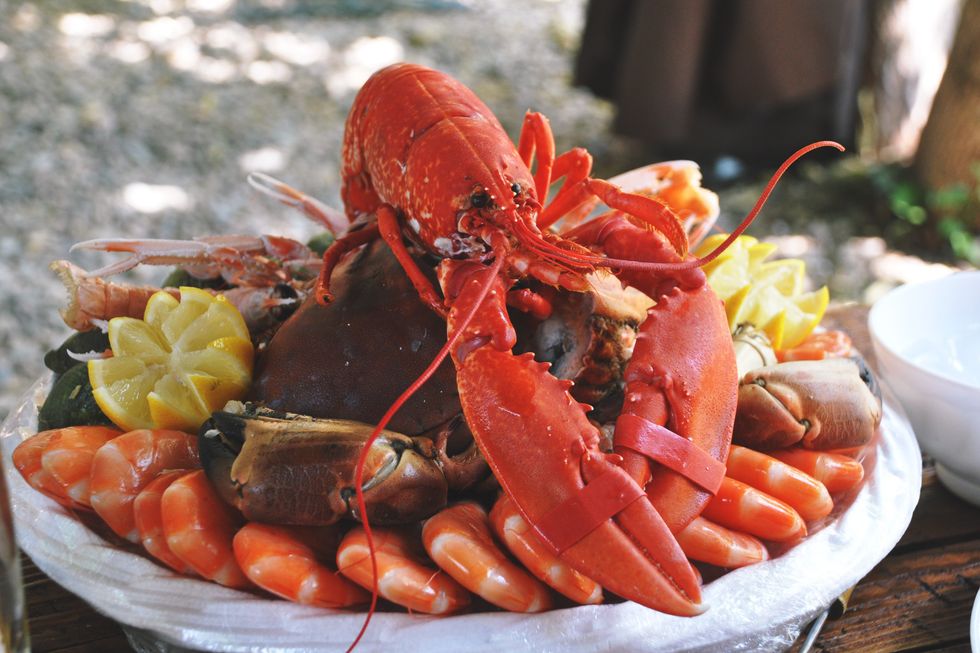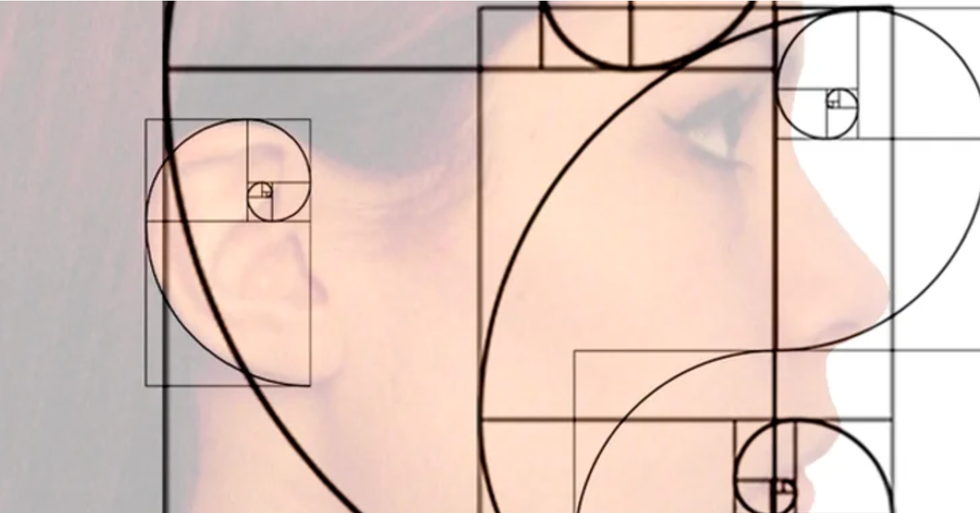“There’s a black guy in Star Wars? Are you kidding me? Come on.”
“There’s always been a black guy in Star Wars! Darth Vader is black!”
“Yeah, but I mean, he’s covered up in a suit. Having a black guy in Star Wars is just wrong.”
“Not all Muslims are radical. Not all of them are extreme.”
“Allison, you know, you’re the one that is going to have to live with all of this. You can’t afford to be this liberal.”
“There are white people out there who do bad things all the time and no one talks about that.”
“They fly planes into buildings?!”
“There’s a white man out there who shot up a church full of black people and no one seems to care.”
“Do you wish you were black or something?”
“Black people are dying out there every day”
“But all people die every day, Allison. All lives matter.”
“Yes, all people die every day, but not to the degree that black people do.”
“Do you want to be black? Do you wish you were black?”
“No, but I am an ally, so I will continue to say something.”
The above are actual conversations that I have had with people. Actual, word for word, conversations.
And while I am continually disheartened every time I engage in a dialogue of this nature, I recognize its necessity and stand by my responses. Yes, I am an ally. No, I do not wish I were black. The people with whom I engaged in these conversations are not bad people. They do not actively wish to harm any individual or collective. In truth, they are members of my immediate family and, in being so, have my love.
But, again, I stand by my responses. Yes, I am an ally. No, I do not wish I were black. The reason being is that I know that, if I were black, my life would be much harder than it is already. For the readers out there who do not know me personally, or have never spent a great deal of time with me, there is something you must know: I am a woman with a disability. I’ve spent the last twenty-seven years of my life dealing with the daily challenges of living with Cerebral Palsy. I make use of a walker to help me navigate my surrounding environment, have trouble with balance, and cannot stand or walk for long periods of time due to tight muscles. I use double the energy to do what most bodies do naturally: put one foot in front of the other.
However, in spite of these challenges, I have had the privilege of growing up in a middle-class family with two parents, a younger brother, and a host of pets. I have never gone without a meal, clothes, or money. Growing up, my parents made sure that I had all the physical therapy (both inside and outside of school), and surgeries that I needed to ensure that I had the best chance of being able to walk. (I could be doing better, but that’s another story and completely on me.) Additionally, I was accepted to, and attended, two of the most well-known schools in the United States: Rutgers University and Teachers College, Columbia University. This past week I graduated with my Masters in Curriculum and Teaching.
I was very involved in campus activities and considered a leader among my social circle. A student senate member, a writer and editor for the school newspaper, a member of the choir, a spoken word performer, solo singer, and holder of a host of other jobs on campus. I had quite the level of autonomy, being able to do what I please with little to no questions about my intentions.
If you’ve stuck with the piece this long, you may wonder why I’ve told you all of this. The answer is simple: the above are privileges. With privilege comes power. And, to quote Spiderman, with power comes responsibility. As a person who grew up, and continues to live, with many privileges, I see it as my responsibility to help and support others in the fight for their rights. Furthermore, how can I expect people of other oppressed groups to help me in the fight for disability rights and awareness if I am not willing to help them?
Additionally, for the sake of transparency, I will admit, that my understanding of the concepts of privilege and racism were very narrow before I attended Teachers College. I remember taking a racism and social justice seminar during my first semester and, when the professor asked us to write down our definition of racism, I wrote something to the effect of: racism is when people judge others based on their skin color. Since then, my definition has expanded. With the help of academic texts, campus events, and discusses with friends and colleagues I have grown to understand racism as privilege plus power and privilege as the ability not to have to think about the oppression of others or your connection to that oppression.
But, again, why does it matter? To help me in answering that question, I shall quote my friend and Odyssey colleague, Alaina Hammond. In her first publication with the platform: Why White People Should Support the Black Lives Matter Movement, she wrote, “But if we allow anyone—including people who don’t look exactly like we do—to be slaughtered indiscriminately, we are saying that we’re okay with it. That we’re okay with a horrific abuse of power existing in the world.”
If we allow people -- including those who do not look exactly like we do -- to be slaughtered indiscriminately, we are saying we are okay with a horrific abuse of power existing in the world.
Furthermore, if we, as white people ignore our connection to these oppressions, we effectively say that history does not matter, that the history that has come before us has no bearing on the present. Any intelligent person knows that that is not the case. History does impact the present. History does make a difference; it provides a precedent for how to act in the future.
Here’s the good news: precedent can be changed, and we have the power to change it. However, in order for it to work, the change has to be active, meaning that we constantly have to be questioning what we think and know, and learning new ways of doing and being. We must work toward obtaining a critical consciousness of who we and how we live, and how that living affects those around us.
The conversations highlighted above are problematic, but the good news is, I, we, have the power to change their direction. I see my work with Odyssey as a call to service. I see my ability to write as a call to service. If I have the ability to weave words together than I must do so in a way that is meaningful, in a way that takes a stand and makes a point, in a way that helps myself and others.
I stand by my response: I am an ally, so I will continue to say something.
I hope you will too.



 File:Hampton Beach, New Hampshire - low tide - panoramio.jpg ...
File:Hampton Beach, New Hampshire - low tide - panoramio.jpg ... fire on fire pit during night time
Photo by
fire on fire pit during night time
Photo by  Free Images : american lobster, dish, new england clam bake ...
Free Images : american lobster, dish, new england clam bake ... vanilla flavor ice cream with chocolate syrup
Photo by
vanilla flavor ice cream with chocolate syrup
Photo by  File:Celebrity Silhouette (ship, 2011) 002.jpg - Wikimedia Commons
File:Celebrity Silhouette (ship, 2011) 002.jpg - Wikimedia Commons
 StableDiffusion
StableDiffusion
 StableDiffusion
StableDiffusion
 StableDiffusion
StableDiffusion
 StableDiffusion
StableDiffusion
 StableDiffusion
StableDiffusion
 StableDiffusion
StableDiffusion




 Going to the cinema alone is good for your mental health, says science
Going to the cinema alone is good for your mental health, says science












 women in street dancing
Photo by
women in street dancing
Photo by  man and woman standing in front of louver door
Photo by
man and woman standing in front of louver door
Photo by  man in black t-shirt holding coca cola bottle
Photo by
man in black t-shirt holding coca cola bottle
Photo by  red and white coca cola signage
Photo by
red and white coca cola signage
Photo by  man holding luggage photo
Photo by
man holding luggage photo
Photo by  topless boy in blue denim jeans riding red bicycle during daytime
Photo by
topless boy in blue denim jeans riding red bicycle during daytime
Photo by  trust spelled with wooden letter blocks on a table
Photo by
trust spelled with wooden letter blocks on a table
Photo by  Everyone is Welcome signage
Photo by
Everyone is Welcome signage
Photo by  man with cap and background with red and pink wall l
Photo by
man with cap and background with red and pink wall l
Photo by  difficult roads lead to beautiful destinations desk decor
Photo by
difficult roads lead to beautiful destinations desk decor
Photo by  photography of woman pointing her finger near an man
Photo by
photography of woman pointing her finger near an man
Photo by  closeup photography of woman smiling
Photo by
closeup photography of woman smiling
Photo by  a man doing a trick on a skateboard
Photo by
a man doing a trick on a skateboard
Photo by  two men
two men  running man on bridge
Photo by
running man on bridge
Photo by  orange white and black bag
Photo by
orange white and black bag
Photo by  girl sitting on gray rocks
Photo by
girl sitting on gray rocks
Photo by  assorted-color painted wall with painting materials
Photo by
assorted-color painted wall with painting materials
Photo by  three women sitting on brown wooden bench
Photo by
three women sitting on brown wooden bench
Photo by 








